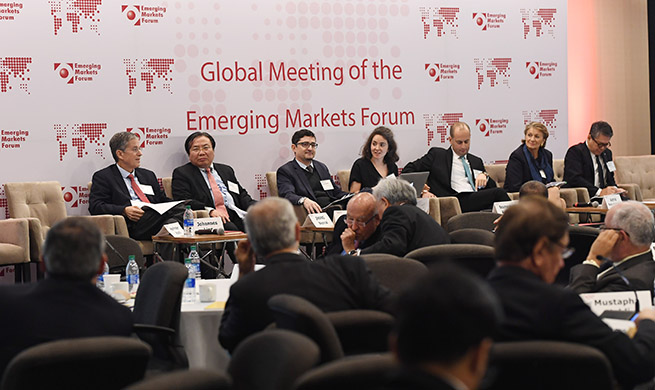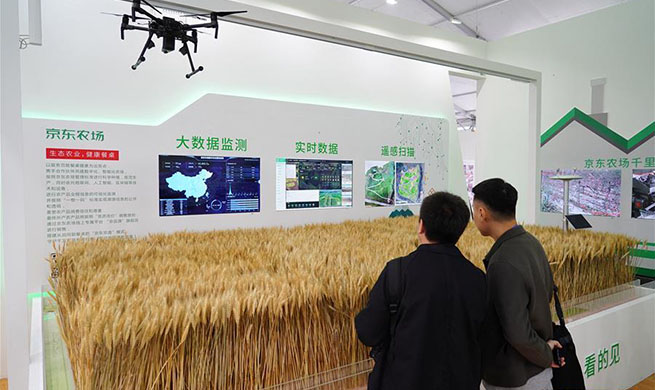NAKURU, Kenya, Oct. 23 (Xinhua) -- Alice Abuga leads a group of 10 women living in a low-income suburb of Nakuru town located about 170 kilometers northwest of the Kenyan capital, Nairobi.
The women who mainly engage in small-scale businesses like hawking ready-to-eat food, groceries and second clothes have come together to form Mawe group.
According to Abuga, Mawe group was formed in 2017 to help its members buy land and build family houses.
When the women meet every month, discussions are not just about how to pool money to increase their development finance, they also discuss how to start income-generating activities, observe financial integrity, and become women leaders and champions of social inclusivity.
"We realized that there is more we would do than just contribute and save," said Abuga during a recent interview.
"We were motivated to look beyond building our own houses by the different needs of our members. Some did not know how to start a business and sustain it or re-invest profits," she added.
Before they meet, the women have a duty to source for information and tip on how to improve themselves from other successful groups or women.
"I am happy to be part of the group. I have learned a lot from the members and my life has really improved since I joined the group in 2017," said Sophia Mwebi, Mawe group's treasurer.
Mwebi who hawked groceries now owns land in Nakuru, has built a house and has five dairy cows.
She said the feat was realized through her savings in the group, having adhered to virtues of consistency and prudence in budgeting her wages.
"We teach ourselves to be judicious in the management of our earnings. We have taught ourselves to write down our expenditures so that we can tell how we spent our money and whether the expenditure was planned for," said Mwebi.
Each month, every member contributes a minimum of 4,000 shillings (about 40 U.S. dollars). One can save as much as she can to boost her shares and qualify for a high-value loan.
Members decide whether to grant members money in cash to buy land or building stones. They are also at liberty to take loans at a five percent interest payable between one to six months.
"We have to come to learn that we have the power in our hands to change our lives. When we started the question was can we manage? But now we ask ourselves where do we go next?" said Mwebi.
All the members have so far bought plots in different areas within Nakuru County, said Abuga.
However, a major challenge the group faces is the decline of profits in businesses owned by the members that they fall back or delay in remitting their savings and loan refunds.
Thus, they started a poultry keeping project to mitigate against a shortfall of savings in the group.
Instead of sharing out the earnings from the 60 layers, the profit is retained as insurance such that when a member is unable to meet her monthly financial obligations, her entitled share is tied.
In recent years, Kenya's government has adopted progressive programs and legislative framework aimed at eliminating social and economic inequalities among women, considered vulnerable groups in the Kenyan society.
National Government Affirmative Action Fund established in 2015 and administered through elected 47 female Members of Parliament is one such initiative financing programs benefitting women especially at the grassroots and low-income areas.
Abuga said accessing information about grants offered by the state is still challenging among the members due to their low literacy levels and minimal sensitization by the government.
Vivian Yegon, a gender officer in Nakuru County said sensitizing women on how to be economically empowered is a continuous process involving multi-pronged approaches.
"We go out to the grassroots to meet women and educate them on Gender-based Violence and those who attend the forums, finally go home with information on how to form groups and register them and bid for government tenders," said Yegon.
"We realize that lack of information is a big hindrance to women's economic empowerment," she added.













